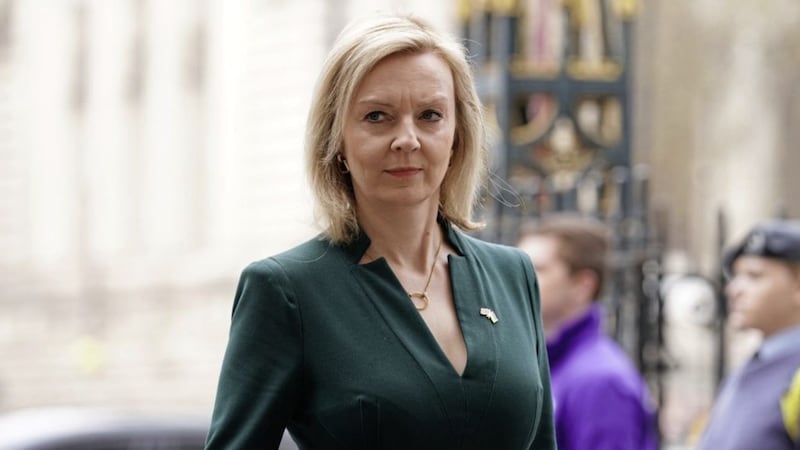The Foreign Secretary’s defence of a Bill to effectively tear up parts of the controversial Northern Ireland Protocol has been dismissed as “utter nonsense” by a lawyer.
Liz Truss shot herself in the foot by claiming the Northern Ireland Protocol Bill was being brought on the basis of the legal doctrine of necessity, a parliamentary committee was told.
Professor Alan Boyle said that the defence of necessity is only relevant when international law is being broken, so Ms Truss was basically admitting this is the case with the Bill.
In Parliament on Monday, Ms Truss defended legal advice underpinning the Bill, telling MPs: “We set out the case extremely clearly in the legal advice and the doctrine of necessity has been used by other governments in the past where there is a severe issue and the other party is unwilling to renegotiate that treaty.”
But Prof Boyle, emeritus professor of public international law at the University of Edinburgh, said he was “aghast” at her comments.
He told the Northern Ireland Affairs Committee on Wednesday: “She was defending this on the basis of the international law principle of necessity.
“Well, I hope somebody has a word with her and tells her not to say that, because necessity as an international law is a defence to a breach of international law. So it’s only relevant if you’re already breaking international law.
“So the Foreign Secretary is virtually saying, ‘oh, yes, we’re breaking international law but it’s alright, because it’s necessary’. Well, that’s utter nonsense.
“You know, can you imagine counsel for the UK in the arbitration? They’re going to be faced with the other side saying, ‘oh the Foreign Secretary has admitted there’s a breach of international law’ so she really is shooting herself in the foot.”
He said the Government’s position is “defensible, provided it’s based fairly and squarely on Article 16”.
Article 16 is a mechanism within the protocol that enables either of the parties to the agreement to unilaterally suspend aspects of the arrangement if they believe they are causing economic, societal or environmental harm.
The Government has not triggered it, with Ms Truss telling Parliament she had considered “all the options, including triggering Article 16, to see whether that would work, to resolve the very serious issues in Northern Ireland, and I have come to the genuine conclusion that they will not”.
Prof Boyle said he sees the Bill as a “serious attempt to put power-sharing back on the road” and that it is not a violation of international law, but rather is “laying the groundwork for a notice of derogation that will have to be served on the EU from a limited number of articles” – such as Article 16.
Professor Holger Hestermeyer, who also addressed the committee, warned that Article 16 is not a “silver bullet” as there could still be areas of dispute further down the line.
The professor of international and EU Law at King’s College London, said: “I don’t think Article 16 is a silver bullet in particular because the factual evidence of what is appropriate for the different concerns on both sides and for both communities, and you come from Northern Ireland, you know this far better than me, finding a solution that appeals to both sides is incredibly difficult.
“And then you can assume that if you go to dispute settlement, say having to argue whether matters are appropriate, whether they are necessary, whether they actually help to safeguard certain societal interests, those will all be in dispute.”
On Monday evening, the Bill cleared its first Commons hurdle, paving the way for it to undergo detailed scrutiny in the coming weeks.
Boris Johnson’s Government has said the measures to remove checks on goods and animal and plant products travelling from Great Britain to Northern Ireland are necessary to safeguard the Good Friday Agreement and peace and stability.



